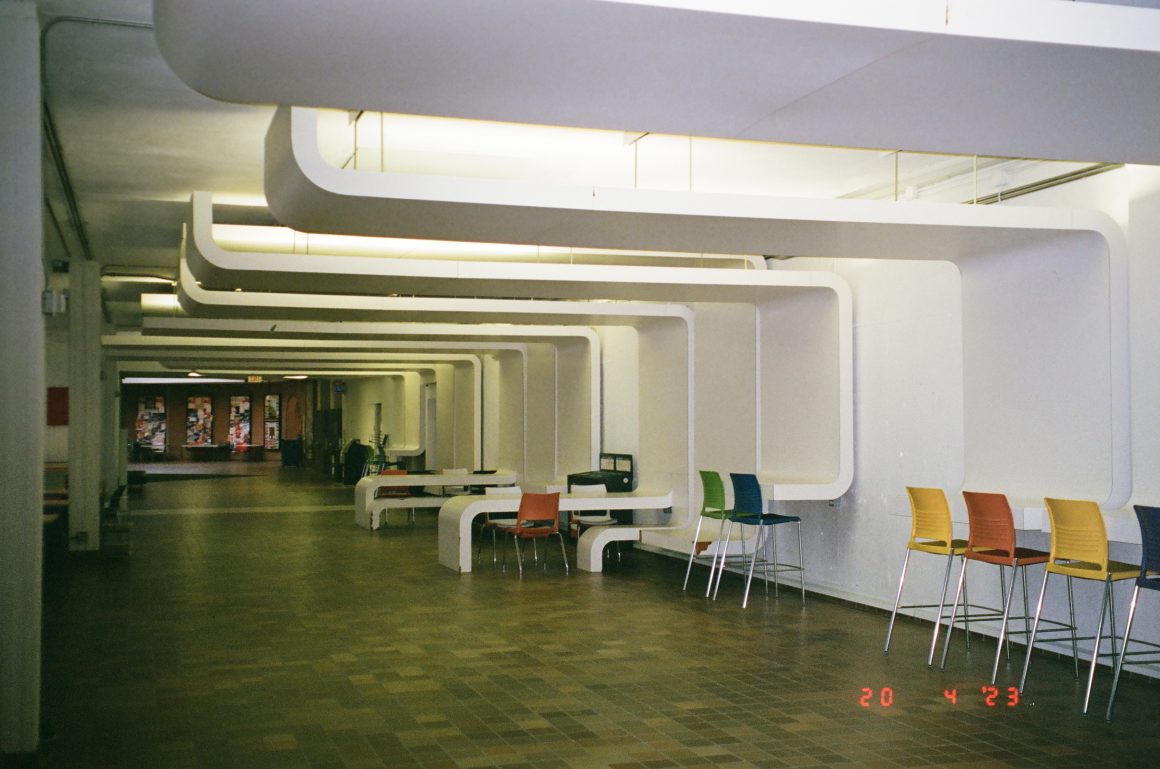
U of C Study examines short-term rental market in Calgary
By Matej Harsany, December 5 2023—
A University of Calgary Department of Economics study is casting a new light on the short-term rental (STR) market’s influence in Calgary, with Dr. Lindsay Tedds, a U of C professor, as one of the main researchers.
In an interview with the Gauntlet, Tedds discussed the functions and goals of this study. The project is set to offer a comprehensive view of the housing market alongside community engagement initiatives to capture the perceptions of Calgarians.
“We’ve done several data analyses on STRs, and are in the process of engagement, as well as studying community costs and benefits of STRs,” said Tedds. “This multiyear quantitative and qualitative study aims to develop a flexible regulatory framework for the city of Calgary, so they have a guidebook of what to consider as the STR market evolves.”
One finding from the STR study reveals that platforms like Airbnb and Vrbo may constrict housing availability and elevate housing and rental prices.
“This can lead to two effects on the local housing market: (1) a reduction of the housing stocks available for permanent residents, and (2) increased rents and housing prices” states Tedds’ report.
Tedds pointed out that in neighbourhoods surrounding the U of C, the STR market is often characterized by single rooms being rented out – typically by students to their peers – which suggests a trend of students leveraging long-term leases or property ownership for short-term rental opportunities. She clarifies that, although a significant 70 per cent of STR listings serve as periodic rentals, the remaining market share, distinct from student-let single rooms, holds potential for reintegration into Calgary’s long-term housing inventory.
“There is a 30 per cent that has the possibility of being returned to either the long-term rental market or the housing market. One thing we notice is that the majority of these listings are not individual rooms, like around the university, but expensive condos or townhouses,” Tedds explained.
In an interview with the Gauntlet, Mateusz Salmassi, the Students’ Union (SU) vice president external, shed light on the array of housing challenges currently faced by students at the U of C.
“More and more students are either pushed to the far corners of the city where they’re poorly served by transit, or are sacrificing safety for affordability if they live closer to campus,” said Salmassi.
He believes that STRs are a contributing factor to the scarcity of long-term housing options, leaving students in a precarious position.
“In Calgary, from our perspective, one of the biggest causes of the housing crisis for students is the vacancy rates. Ensuring STRs are not eating up supply is crucial for ensuring students can find a place to live for their academic careers,” Salmassi continued.
Salmassi also raised concerns about the safety and protection for students who turn to STRs for their own living arrangements, suggesting these options may not offer the security they need.
“When it comes to STRs the big concern for us is when students cannot find long term leases and rent Airbnb’s instead, which do not guarantee the same protections,” said Salmassi. “Our hope is that regulations can be put in place that ensure that while students are living in STRs they aren’t left outside of tenant protections.”
Tedds touched on some of these student concerns in her examination of policies in municipalities across Canada, considering how STRs could be regulated to avoid encroaching on the general housing market.
“When you look at regulatory policies across Canada there are some smart, flexible regulations such as capping the number of short term rental licenses that can be issued to a particular building, to avoid ghost hotels, and putting a moratorium on issuing new licenses if vacancy rates drop,” Tedds said.
She continued with the issue of licensing, emphasizing its role in ensuring the safety of STR accommodations.
“On Jan. 1, we have regulation coming to the city of Calgary related to fire safety in STRs, based on the Montreal fires, promoting the requirement of floor plans and fire inspections to ensure they are safe.”
Tedds noted that the introduction of rigorous licensing requirements might lead to a decrease in the number of STRs available on the market.
“These regulations may have an impact on some short term rentals, which would not go back on the market, because they won’t be able to satisfy the requirement that they must, in order to get a renewed business licence,” said Tedds.
While acknowledging the challenges posed by STRs, Tedds also highlighted their economic benefits and, in many instances, their essential role in the housing ecosystem.
“We need a flexible housing stock for not only tourism, but for those from rural Alberta who travel to Calgary for healthcare treatments, which the STR market facilitates, or medical personnel who come to Calgary for locums,” Tedds explained.
Tedds ultimately emphasized that the STR market presents a complex mix of advantages and disadvantages that must be carefully weighed.
“This is a market that has costs and benefits. I think a lot of the narrative about STR’s has maligned them in a way that I think is unhelpful for our economy. At the same time, we are facing a housing crisis, so we must consider whether housing is a social good, investment good, or both. ”
Students can visit the City of Calgary’s engagement portal to participate in a survey that contributes to Tedds’ ongoing research and shapes the future landscape of STRs in Calgary.
